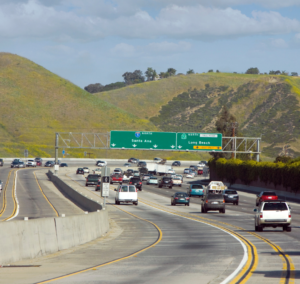A compilation of news about the trucking industry.
States pass bills regarding predatory towing
Legislation regarding predatory towing is being reviewed in several state chambers to protect consumers, especially truck drivers. The Owner-Operator Independent Drivers Association (OOIDA) has been working with states to implement standards that safeguard truckers from unauthorized towing.
In Florida, bill HB179 aims to address abusive towing practices by establishing maximum fees and complaint resolution processes. On the other hand, in Kentucky, bill SB107 has been introduced to regulate fees and enforcement in towing companies, while in Mississippi, bills HB1622 and SB2635 seek to regulate unauthorized towing of commercial vehicles.
Similarly, in Missouri, bill HB2214 protects truckers against excessive charges for unauthorized towing. Additionally, two bills in Virginia seek to prohibit towing requests at accident scenes, protecting drivers from being pressured by towing companies in roadside emergencies.

OOIDA sent letter requesting support for the DRIVE Act
OOIDA sent a letter on February 20 requesting support for the DRIVE Act. In the letter, it explained that speed limiters could make roads less safe by forcing trucks to travel below traffic flow, thereby increasing the risk of accidents.
The DRIVE Act aims to prevent the FMCSA from moving forward with regulations requiring speed limiters on heavy trucks. OOIDA, representing small business truckers, opposes these limiters and supports HR3039. In total, HR3039 has 36 co-sponsors, while the Senate bill has nine.
The FMCSA is expected to propose in May a requirement for most commercial vehicles to use a speed limiting device. Although the proposed maximum speed has not yet been revealed, options of 60, 65, and 68 mph are being considered, all significantly slower than traffic flow on many U.S. roads. The idea has faced resistance among truckers, with thousands expressing opposition when the FMCSA announced its plans in 2022, receiving around 15,000 comments, the majority from truckers disagreeing with the regulation.

Weekly diesel prices in the U.S.
According to data published by the Energy Information Administration, the national average price of a gallon of diesel decreased by 5.1 cents in the week ending February 26th.
The national average now stands at $4.058 per gallon. The average price of a gallon of diesel by region, according to the EIA report, is as follows:
- Lower Atlantic – $4.120
- Central Atlantic – $4.324
- California – $5.225
- East Coast – $4.185
- West Coast – $4.692
- Gulf Coast – $3.768
- Midwest – $3.961
- Rocky Mountains – $3.999


TAA Compliance: When Safety Complaints Turn Into Six-Figure Losses
STAA compliance is no longer a technical detail for fleet owners—it is a financial, legal, and insurance exposure. A recent enforcement action in Texas shows how mishandling safety complaints can lead to termination claims, retaliation findings, and six-figure penalties, and what carriers must do to avoid becoming the next case

U.S. labor market raises red flags on Wall Street
The U.S. labor market closed 2025 with clear signs of weakening, as evidenced by the latest employment data released in December. In the latest episode

DOT finds half of North Carolina CDLs were issued illegally
The DOT warns that half of North Carolina’s CDL licenses are irregular after a federal audit uncovered serious compliance failures. The findings directly affect truckers, fleets, and transportation companies, raising urgent questions about road safety, legal operations, and the future of the trucking industry.

California’s Unhealthy Air: Impacts on Trucking and Freight
Unhealthy Air Quality in California: What Repeated Pollution Alerts Mean for Trucking and Freight Operations

Global Road Freight on Track to Hit USD 5 Trillion by 2033
Global Road Freight on Track to Hit USD 5 Trillion by 2033 as e-commerce growth, supply chain restructuring, and technology adoption accelerate demand for road-based cargo transport worldwide.

California misses DOT deadline risking $160 million in federal funding
The state of California has reached the deadline set by the DOT to take action regarding the situation involving the number of non-domiciled CDLs issued
